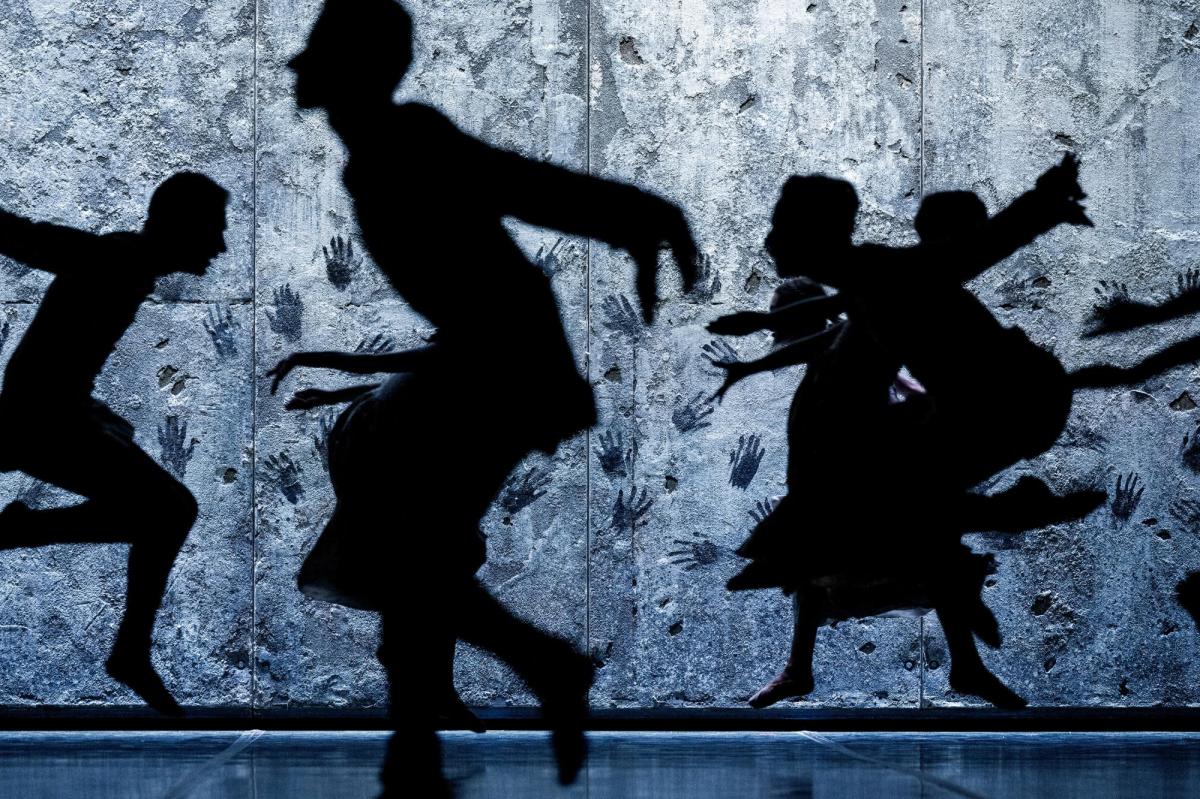Akram Khan’s dramatic re-envisioning of the classic romantic ballet Giselle has been pounding the boards across the UK and around the world since it was first produced for the English National Ballet back in 2016. In its debut season it was rightly hailed as a masterful reimagining of a work that is a classic of the British ballet canon and one that made an enormous impression on audiences and critics when it premiered back in 1841.
The work’s full title back then was Giselle ou les Wilis, and was sometimes just billed as Les Wilis. The ‘wilis’ were the ghosts, and particularly the ghosts of unmarried women who met their sad demise after being betrayed by their lovers. This supernatural element took Giselle beyond the notions of the traditional ballet-pantomime about love and class and society and into a more esoteric realm.
Khan has relocated the story to feature the plight of disenfranchised migrant workers in a dismal, but unnamed, community. As the ballet begins, the dancers are on a darkened stage struggling against an imposing wall. This later becomes an impressive set piece, tilting with remarkable smoothness and hovering menacingly above the dancers.
Taking the dual roles of director and choreographer, Khan’s vision is of a dark and foreboding place where the individuals, especially the women, have little agency or autonomy. Their only power is that of the dance and they use this to devastating effect.
Khan adapts gestures and movements from Indian Kathak dancing and this infuses the work, especially in the hands and postures of the dancers. And there are some beautiful contrasts between Act One and Act Two, most notably the prolonged en pointe sequences in the second half. The corps de ballet, known here as the artists of the company, are superb throughout, dancing with impressive passion and precision. There is a real vitality that comes from their sustained and vigorous dancing.
Erina Takahashi is superb in the title role embodying both fragility and strength; she really does dance as if her life – or her afterlife – depends on it. The two male leads, James Streeter as the unpleasant Albrecht and Ken Saruhashi as Hilarion, bring to life their very different characters through nuances of style and choreography. There seems to be little onstage chemistry between Gisele and Albrecht, even though the dancing in their highlight love duet is intense and intimate. Saruhashi is impressive as Hilarion and brings a wonderfully ethereal quality to the role.
This is undoubtedly a powerful production with striking choreography by Khan, brooding lighting design by Mark Henderson, and that impressive set by Academy Award-winner Tim Yip, who also designed the costumes. It seems unfortunate that some of the key moments take place in the shadows because of the deliberately murky lighting, but perhaps that’s the point – so much of life happens in the shadows.
The expressive music, played live by the English National Ballet Philharmonic down in the pit under musical director and conductor Maria Seletskaja, is enormously important in establishing the mood and atmosphere of the work. Vincenzo Lamagna wrote the music using the original 1841 Adolphe Adam score with orchestration here by Gavin Sutherland.
Read: Music review: Elgar & Holst, The Barbican, London
Akram Khan’s Giselle is a stunning piece of modern dance, but the essential narrative is overwhelmed by all the frenetic activity on stage. We can’t feel their pain and share their angst if we’re not really sure what’s happening. A little more coherent storytelling would do so much to enhance the work’s emotional resonance. Nevertheless, it is now hailed as a modern classic and is an absolute masterclass in contemporary ballet.
Akram Khan’s Giselle
Sadler’s Wells Theatre, London
Direction and Choreography: Akram Khan
Composition and Sound Design: Vincenzo Lamagna after the original score by Adolphe Adam
Orchestration: Gavin Sutherland
Visual and Costume Design: Tim Yip
Lighting Design: Mark Henderson
English National Ballet Philharmonic
Music Director and Conductor: Maria Seletskaja
Principal Dancers: Erina Takahanshi, James Streeter, Ken Saruhashi
Akram Khan’s Giselle will be performed until 28 September 2024.





